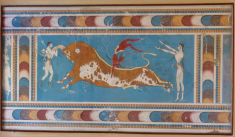Speaker
Description
N. Korolkova, University of St. Andrews, UK; D. Mogilevtsev, Istitute of Physics, Belarus Academy of Sciences,Belarus; S. Mukherjee, R. R. Thomson, Heriott-Watt University, UK.
The engineering of dissipation to a common reservoir generates a vast array of novel structures for photonic application and quantum simulation [1]. We suggest here novel possibilities for photonics that are generated by diffusive light propagation [2]. The dissipative coupling of bosonic modes can allow light to flow like heat, whilst retaining coherence and even entanglement. The Photonic Circuit has generally been a structure in which light propagates by unitary exchange and where photons transfer reversibly between channels. In contrast, the term ‘diffusive’ is more akin to a chaotic propagation in scattering media, where light is driven out of coherence towards a thermal mixture. We have devised a way to unite these opposites, founded from the dynamics of open quantum systems and resulting in novel techniques for coherent light control. The crucial feature of these photonic structures is dissipative coupling between modes; an interaction with a common reservoir. We demonstrate experimentally that such systems can perform optical equalisation to smooth multimode light, or act as a distributor, guiding it into selected channels. Quantum thermodynamically, these systems can act as catalytic coherent reservoirs by performing perfect non-Landauer erasure. When extending to lattice structures, localized stationary states can be supported in the continuum, similar to compacton-like states in conventional flat band lattices. In the future, we believe that diffusive photonic systems will find practical application both in studying the fundamental processes of structurally engineered open systems and in an array of integrated photonic technologies.
[1] G. M. Palma, K-A. Suominen, and A. K. Ekert: Quantum Computers and Dissipation, Proc. Roy. Soc. London Ser. A 452, 567 (1996).
[2] S. Mukherjee, D. Mogilevtsev, G. Ya. Slepyan, T. H. Doherty, R. R. Thomson, N. Korolkova: Coherent Diffusive Photonics, arXiv:1703.06025 [quant-ph] (2017).
Summary
The dissipative coupling of bosonic modes can allow light to flow like heat, whilst retaining coherence and even entanglement. A linear system of dissipatively coupled waveguides can act as an optical equaliser, smoothing fluctuations in amplitude and phase towards a common output. Non-classical input will evolve into a completely symmetrized, correlated, state of the whole system. This equalising action has been experimentally demonstrated using laser inscribed waveguides. The system is of interest for the simulation of complex quantum many-body systems, for quantum thermodynamics and for photonics applications.
| Topic: | Topic: Quantum Physics, Quantum Optics and Quantum Information |
|---|
